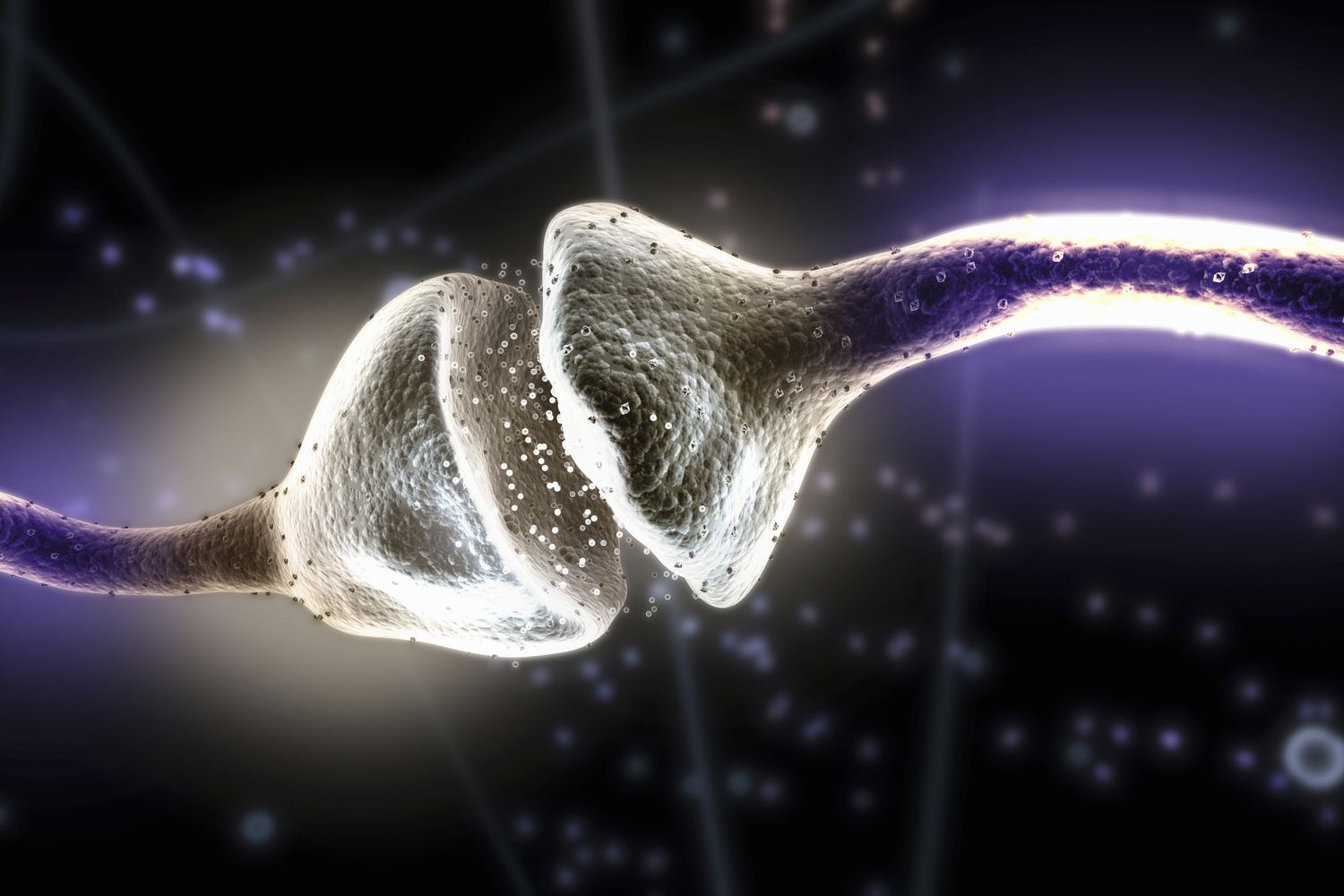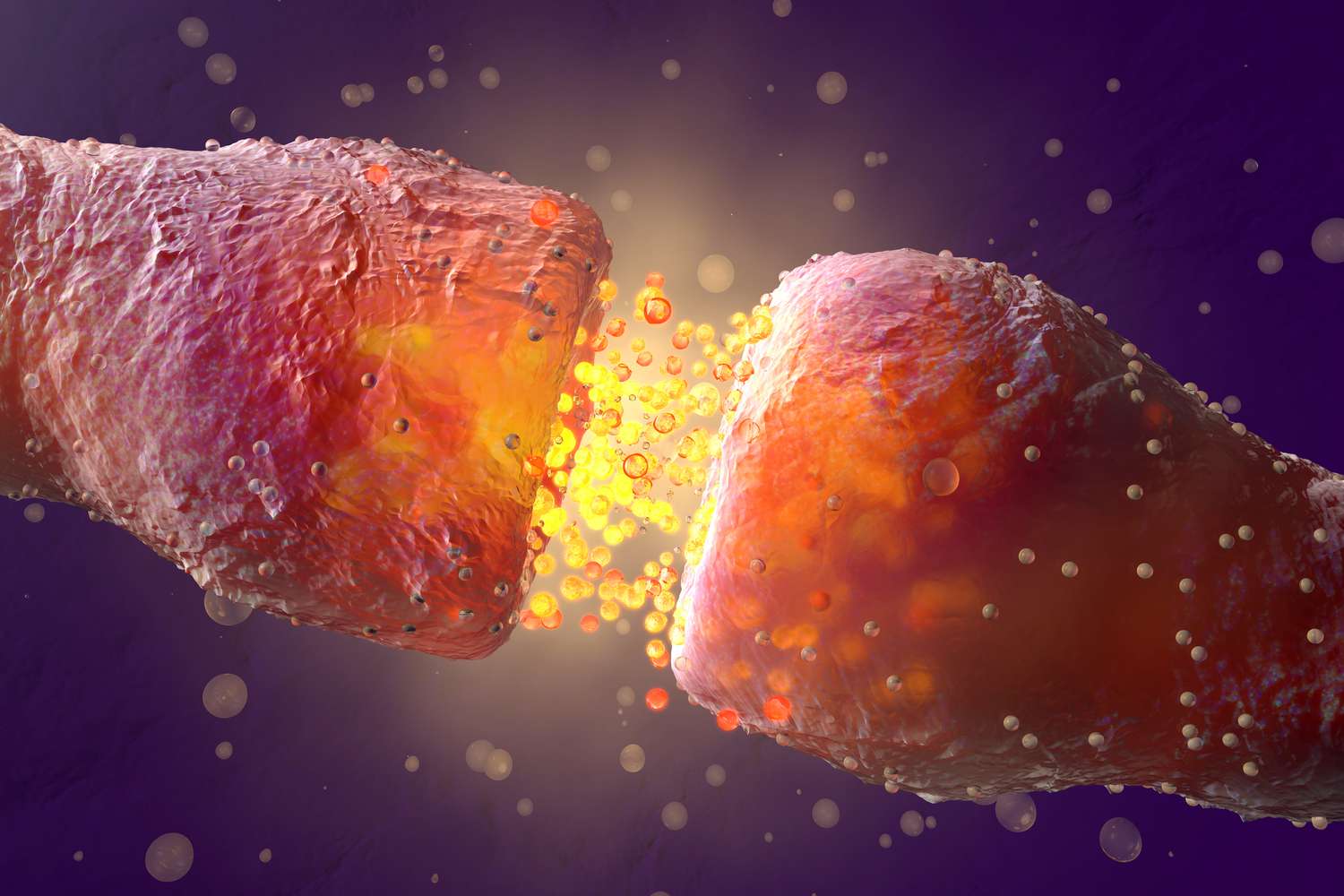
Neurotransmitters are the brain's chemical messengers, playing a crucial role in transmitting signals between nerve cells. These tiny molecules influence everything from mood to muscle movement. Ever wondered why you feel happy, sad, or stressed? It's all about the balance of neurotransmitters like serotonin, dopamine, and norepinephrine. Serotonin helps regulate mood, sleep, and appetite. Dopamine is linked to pleasure and reward, while norepinephrine affects alertness and energy. Understanding these chemicals can help us grasp how our brain functions and why we feel the way we do. Let's dive into 40 fascinating facts about these powerful brain chemicals!
What are Neurotransmitters?
Neurotransmitters are chemicals that transmit signals across a synapse from one neuron to another. They play a crucial role in the functioning of the nervous system. Let's dive into some fascinating facts about these essential molecules.
-
Neurotransmitters are chemical messengers: They carry signals between neurons, enabling communication within the brain and throughout the body.
-
There are over 100 types: Scientists have identified more than 100 different neurotransmitters, each with unique functions.
-
They can be excitatory or inhibitory: Excitatory neurotransmitters stimulate the brain, while inhibitory ones calm it down.
-
Dopamine is linked to pleasure: Often called the "feel-good" neurotransmitter, dopamine plays a key role in reward and motivation.
-
Serotonin affects mood: This neurotransmitter helps regulate mood, appetite, and sleep. Low levels are linked to depression.
How Neurotransmitters Work
Understanding how neurotransmitters function can shed light on their importance in our daily lives.
-
Released from synaptic vesicles: Neurotransmitters are stored in synaptic vesicles and released into the synaptic cleft when a neuron fires.
-
Bind to receptors: Once released, they bind to specific receptors on the receiving neuron, triggering a response.
-
Reuptake process: After transmitting their message, neurotransmitters are either broken down by enzymes or reabsorbed by the releasing neuron in a process called reuptake.
-
Synaptic plasticity: The strength and efficiency of synaptic connections can change over time, a phenomenon known as synaptic plasticity, which is crucial for learning and memory.
-
Neurotransmitter imbalance: Imbalances can lead to various mental health disorders, including anxiety, depression, and schizophrenia.
Types of Neurotransmitters
Different neurotransmitters have distinct roles and effects on the body and mind.
-
Acetylcholine: Involved in muscle activation, attention, and memory. It's the first neurotransmitter discovered.
-
Glutamate: The most abundant excitatory neurotransmitter in the brain, essential for cognitive functions like learning and memory.
-
GABA (Gamma-Aminobutyric Acid): The primary inhibitory neurotransmitter, it helps reduce neuronal excitability and anxiety.
-
Norepinephrine: Influences attention, arousal, and the fight-or-flight response.
-
Endorphins: Natural painkillers produced by the body, they also create feelings of euphoria.
Neurotransmitters and Mental Health
The balance of neurotransmitters is vital for mental well-being.
-
Serotonin and depression: Low serotonin levels are commonly associated with depression and anxiety disorders.
-
Dopamine and addiction: Dopamine dysregulation is linked to addictive behaviors and substance abuse.
-
GABA and anxiety: Insufficient GABA activity can lead to increased anxiety and panic disorders.
-
Norepinephrine and stress: High levels of norepinephrine are associated with stress and hyperarousal.
-
Acetylcholine and Alzheimer's: Reduced acetylcholine levels are found in individuals with Alzheimer's disease, affecting memory and cognitive function.
Neurotransmitters in Everyday Life
These chemicals influence many aspects of our daily experiences and behaviors.
-
Sleep regulation: Serotonin and GABA play significant roles in sleep patterns and quality.
-
Appetite control: Neurotransmitters like serotonin and dopamine help regulate hunger and satiety.
-
Mood swings: Fluctuations in neurotransmitter levels can cause mood swings and emotional instability.
-
Focus and attention: Dopamine and norepinephrine are crucial for maintaining focus and attention.
-
Pain perception: Endorphins and other neurotransmitters modulate how we perceive and respond to pain.
Interesting Facts About Neurotransmitters
Here are some lesser-known but intriguing facts about neurotransmitters.
-
Gut-brain connection: The gut produces about 90% of the body's serotonin, highlighting the link between digestive health and mood.
-
Exercise boosts neurotransmitters: Physical activity increases levels of neurotransmitters like dopamine and endorphins, improving mood and reducing stress.
-
Diet impacts neurotransmitters: Nutrients like omega-3 fatty acids, vitamins, and minerals are essential for neurotransmitter production and function.
-
Neurotransmitters and aging: As we age, neurotransmitter levels can decline, affecting cognitive function and mood.
-
Artificial neurotransmitters: Scientists are developing synthetic neurotransmitters to treat neurological disorders.
Neurotransmitters and Technology
Advancements in technology are helping us understand and manipulate neurotransmitters better.
-
Brain-computer interfaces: These devices can interpret brain signals, potentially allowing control of computers or prosthetics through thought.
-
Neurotransmitter imaging: Techniques like PET scans and fMRI allow scientists to visualize neurotransmitter activity in the brain.
-
Genetic engineering: Researchers are exploring ways to modify genes to influence neurotransmitter production and function.
-
Neurotransmitter-based therapies: New treatments for mental health disorders focus on balancing neurotransmitter levels.
-
Wearable tech: Devices that monitor neurotransmitter levels in real-time are being developed, offering insights into mental and physical health.
Future of Neurotransmitter Research
The study of neurotransmitters continues to evolve, promising exciting developments.
-
Personalized medicine: Tailoring treatments based on individual neurotransmitter profiles could improve mental health outcomes.
-
Neurotransmitter mapping: Creating detailed maps of neurotransmitter pathways in the brain could enhance our understanding of brain function.
-
Artificial intelligence: AI is being used to analyze neurotransmitter data, leading to new discoveries and treatments.
-
Neurotransmitter replacement: Developing methods to replace or supplement deficient neurotransmitters could treat various neurological conditions.
-
Neurotransmitter sensors: Advanced sensors could provide real-time monitoring of neurotransmitter levels, aiding in the diagnosis and treatment of disorders.
Final Thoughts on Neurotransmitters
Neurotransmitters play a crucial role in how our brains function. These chemical messengers influence everything from mood to muscle movement. Understanding them helps us grasp how our bodies and minds work together. For instance, dopamine affects pleasure and motivation, while serotonin impacts mood and sleep. Acetylcholine is vital for learning and memory. Knowing these facts can help us appreciate the complexity of our nervous system.
Research continues to uncover more about these fascinating chemicals. Scientists are exploring how imbalances contribute to conditions like depression and Parkinson's disease. This knowledge could lead to better treatments and improved quality of life for many people.
So next time you feel happy, sad, or even just a bit sleepy, remember those tiny neurotransmitters at work. They might be small, but their impact is enormous.
Was this page helpful?
Our commitment to delivering trustworthy and engaging content is at the heart of what we do. Each fact on our site is contributed by real users like you, bringing a wealth of diverse insights and information. To ensure the highest standards of accuracy and reliability, our dedicated editors meticulously review each submission. This process guarantees that the facts we share are not only fascinating but also credible. Trust in our commitment to quality and authenticity as you explore and learn with us.


